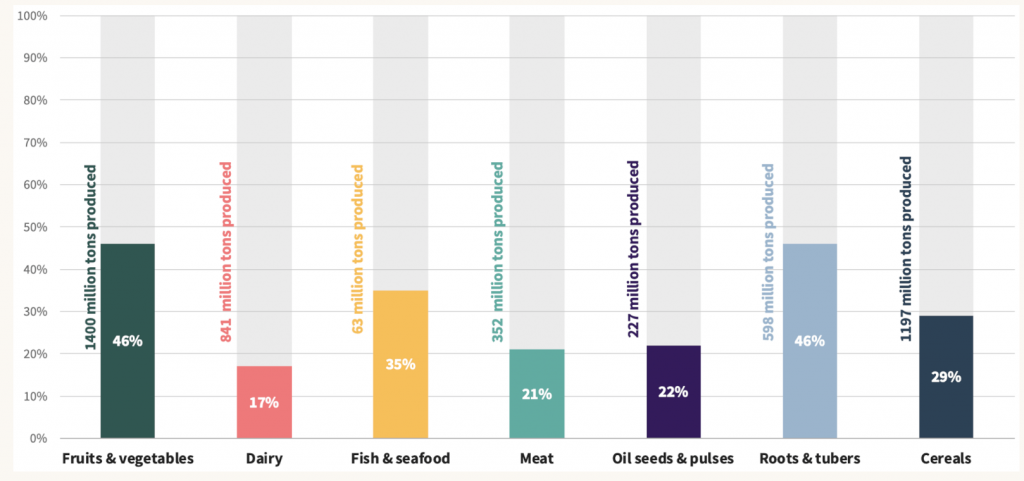Thursday, August 19th, 2021...8:42 pm
Turning Food Waste into Profits
By Da Beattie
According to a 2011 report by the Food and Agricultural Organization of the United Nations (FAO), one-third of food produced for human consumption is wasted; and this percentage is expected to increase by 2030. However, the definition of food waste is disputable due to cultural differences in what is considered edible.
As of 2016, 40% of food waste occurs during harvest and processing in developing countries due to a lack of sufficient technology to efficiently harvest crops.
In 2012, developed countries wasted over 222 million tonnes of food which is the equivalent to the net food production of Sub-Saharan Africa.
Generally, the most common foods thrown away are fruits and vegetables, which make up 42% of total food waste, with fish and seafood being the least common to waste at 1%. In terms of how much food is wasted compared to production levels, fruits and vegetables are once again at the top of the list. The graph below provides insight on food waste, organized by food category.

Despite the increasing amounts of food waste, the issues surrounding it continues to be left unaddressed. Many individuals suffer from chronic food deprivation, and as of 2017, this number was estimated at over 821 million people. Although the number of individuals malnourished occupies a larger percentage of the total population in developing nations, hunger and food insecurity are global issues that occur all over the world.
Not only is world hunger an issue, but food waste also wastes global resources like water and money spent on food production. As more food is wasted at a rate faster than degradation, landfills are becoming increasingly full. This can leach toxic byproducts and chemicals into the soil and wastewater. As well, some studies show that there are many short and long-term health effects due to living nearby a landfill such as cancers, allergies, and issues regarding birth and fetus development.
Methane emissions from decomposing food also contribute to the greenhouse gas effect, thus, exacerbating climate change and increasing the global temperature, which causes many undesirable effects, including making agriculture more unpredictable.
The biggest problem with food waste is that it is largely preventable. With proper legislation, organization, and technology, the amount of food waste can be reduced, and Too Good To Go, also known as toogoodtogo is just one of many companies whose mission focuses on doing so.
Toogoodtogo is a company that uses its app to reduce food waste by connecting businesses such as grocery stores, bakeries, and restaurants to consumers who can buy nearly expiring food that is still edible at 1/3 the cost of the original retail price. Although initially implemented in various European cities, toogoodtogo has recently come to Toronto with participating stores like SummerHill Market, the Pantry, and many others. Depending on the participating store, consumers can choose between bakery, produce, or prepared foods through the toogoodtogo app. Although the consumer must go in person to pick up their mystery bag, payment and confirmation of pick up are all done contact-free through the app, making the process easy and COVID safe. This is a great way to save money and reduce food waste!
By supporting companies like toogoodtogo and by encouraging the development of food waste prevention businesses, many elements surrounding the issue can be resolved. Companies can profit by helping the planet and make food affordable and accessible to those who need it, reducing the build-up of food waste in landfills.
Check out toogoodtogo and keep an eye out for other companies with similar goals. Remember to think twice before wasting food and find alternative ways to prevent doing so!
Sources:
http://www.fao.org/3/i2697e/i2697e.pdf
http://www.fao.org/3/c0088e/c0088e.pdf
http://www.fao.org/3/mb060e/mb060e.pdf
https://www.bcg.com/publications/2018/tackling-1.6-billion-ton-food-loss-and-waste-crisis
https://www.cbc.ca/news/science/un-hunger-climate-change-1.4818400
Leave a Reply